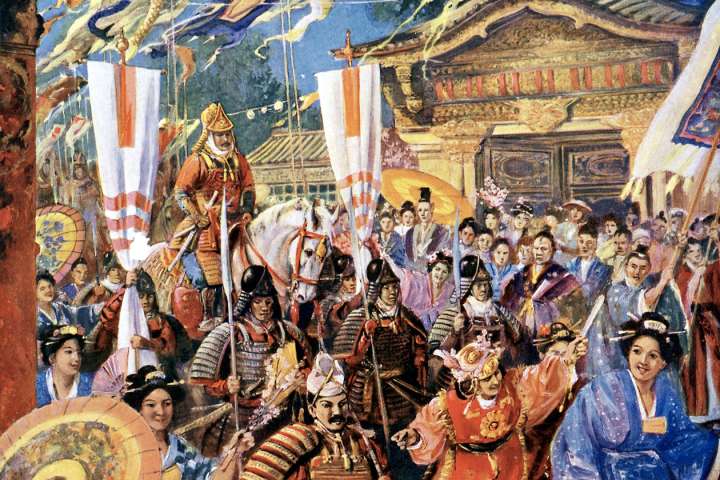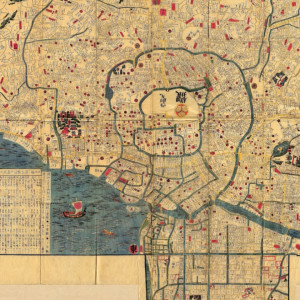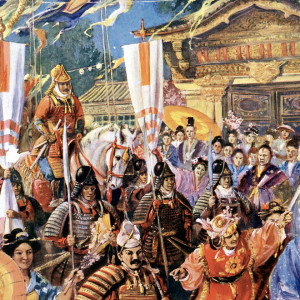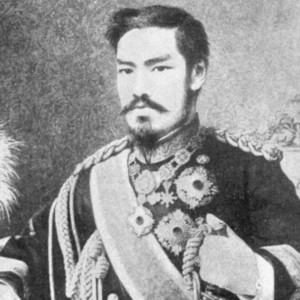Discover the History Behind Hulu's Series "Shogun"
Preview Discover the History Behind Hulu's Series "Shogun"
Whether you're a fan of the show, interested in learning more about Japanese history, or are planning a trip to Tokyo and want to connect pop culture with tangible historical anecdotes, this talk will reveal the stories and details you crave to connect more deeply with Japan.

Gavin received a Ph.D. in history from the University of North Carolina, Chapel Hill, and came to Kyoto in 2001 to take his current position as a tenured university professor of history, religious studies, and American Studies. Since 2016, he is also a Fellow at Harvard's Reischauer Institute of Japanese Studies. Much of his teaching and research center on Japan's encounters with the West, particularly during the Edo, Meiji, Taisho and early Showa periods (1600-1940), and he has published on the history of foreign tourism, Protestant missionaries in Japan, and the history of Japanese fashion. He is also an expert on Kyoto geisha culture, not only as an historian, but also as a patron of the geisha world. His most recent publication is “Modern Kyoto, Modern Geisha: Geisha Entertainment in the 1920s and 1930s,” which is an open access resource that includes many rare images from his personal collection of prewar geisha memorabilia. Interested readers can find it here: https://www.modernkyotoresearch.org/modern-geisha-1918-1941 or by searching online with the title “Modern Kyoto, Modern Geisha.” He enjoys reading, loves attending geisha parties, always makes time to spend with his family, and is happy exploring with clients Kyoto's endlessly fascinating culture and history.
The breakout success of the Shōgun miniseries has reignited global fascination with early modern Japan—but how much of the drama is rooted in real history? In this dynamic lecture, Kyoto-based historian and longtime Context guide Gavin Campbell offers a deeper look at the world behind the screen. Drawing on decades of research and teaching, Campbell unpacks the political and cultural landscape of Tokugawa Japan, explaining how a feudal structure—built on the delicate balance between emperor, shogun, daimyo, and samurai—held the country together for over 250 years.
Move beyond dates and titles to explore the human stories within the system. Learn how Tokugawa Ieyasu’s push for order and hierarchy unexpectedly gave rise to Japan’s most iconic cultural exports: geisha, kabuki theater, and the irreverent art of the “floating world.” Come away with a richer understanding of how a society rooted in obedience and austerity sparked a flourishing of creativity and expression.
Whether new to Japanese history or a longtime enthusiast, this lecture offers the kind of thoughtful, engaging context that turns curiosity into deeper connection. It’s a must-watch for anyone who wants to understand not just what happened—but why it still resonates today.
Once you complete your purchase, you will receive an email with a link to stream the lecture on the Context Travel website. You can also access your past purchases anytime under My Orders. Please ensure you are logged into your account to open the streaming page.
Is closed captioning (i.e. subtitles) available?
Yes! All of our lectures have the option to turn on closed captioning should you have difficulty hearing the expert.
How long does each event last?
Our recorded lectures typically run for 60 minutes.
How can I share this lecture with friends or family?
You are welcome to watch together with friends or family but each person viewing on their own device will need to purchase the lecture individually.
How long does my access to the lecture last?
Once you purchase a lecture, you are welcome to view it as many times as you like and your access does not expire.
What is your cancellation and refund policy?
Sales for recorded lectures are final upon purchase. Please contact us at digital@contexttravel.com if you have any questions or concerns about your purchase.
Can I purchase a gift card for a friend who is traveling?
Absolutely! Gift cards can be purchased here. Gift cards are good for 365 days from the date of purchase.





